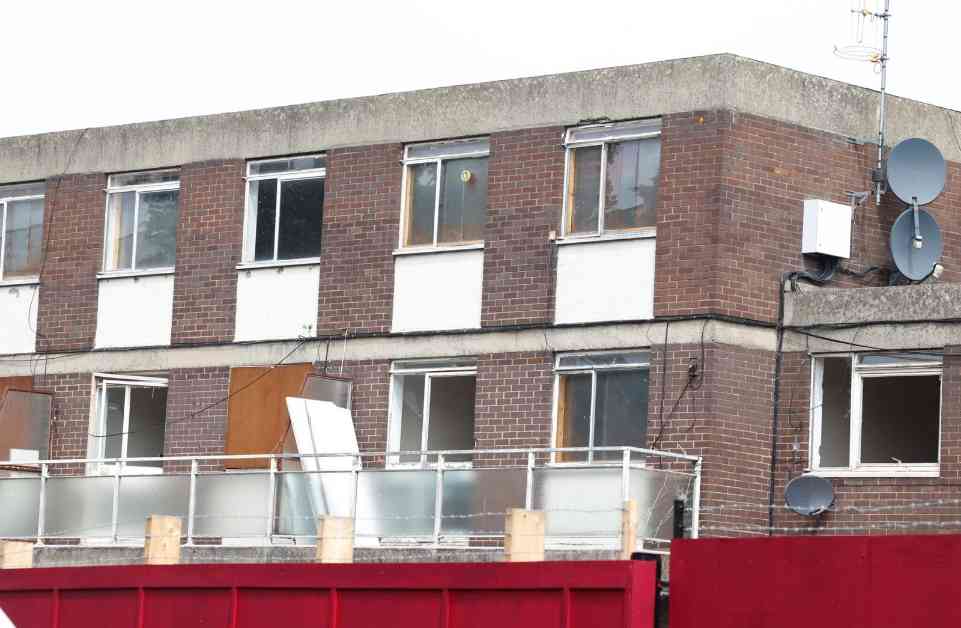Greenwich council has recently made a decision to reduce the number of homes it will own in the regeneration of the Maryon Grove estate, following warnings that the viability of the scheme was at risk. This move will result in fewer people being able to move into council properties, with some residents having a housing association as their landlord instead. The project is part of a broader initiative by Greenwich council dating back to 2013 to regenerate three Woolwich estates that were originally built in the 1960s.
Background of the Regeneration Project
The regeneration project, to be carried out in partnership with Lovell and PA Housing, aims to demolish the 1,064 homes in the Connaught, Morris Walk, and Maryon Grove estates, replacing them with 1,615 new units. The existing buildings were deemed to have reached the end of their natural lives, necessitating the redevelopment. Of the total number of new units, 165 are slated to be built in the Maryon Grove estate.
Initially, Greenwich council had agreed to take ownership of 265 homes across the three sites for social housing purposes, with 175 of them designated for the Morris Walk estate and 90 for Maryon Grove. However, under the new agreement, the council will only own 53 homes on the Maryon Grove site. PA Housing’s 79 shared ownership units will now be converted into socially rented homes, with PA acting as the landlord for these units. The remaining 33 new units on the site will be available for private sale through Lovell.
Challenges Faced by the Regeneration Project
The Maryon Grove estate in Woolwich stood empty for over a year after its final residents were relocated in March of the previous year. The site, which comprised 172 homes spread across 16 four-storey blocks, was eventually demolished following the erection of tall red hoardings around it due to safety concerns. The decision to reduce the number of homes owned by the council was made at a recent council cabinet meeting, where Jeremy Smalley, deputy director of regeneration and property, emphasized the need to approve the proposal to safeguard the project’s viability.
Smalley highlighted significant challenges such as build cost inflation and borrowing costs that posed a threat to the scheme’s financial feasibility. He warned that Lovell, one of the project partners, could potentially walk away from the project if the proposed changes were not accepted. Council officers echoed these concerns in their report, stating that the council could be held liable for the costs of demolishing the estate if partners decided to withdraw their support.
The council also expressed apprehension about its ability to independently develop the site if partner organizations pulled out. The potential lack of capital for solo development was a significant concern, prompting the council to prioritize maintaining the project’s momentum by adapting to the revised plans. This decision was seen as a strategic move to prevent delays or setbacks that could jeopardize the overall success of the regeneration project.
Emphasis on Affordable Housing
Despite the adjustments made to the ownership structure of the homes in the Maryon Grove estate, the council remains committed to ensuring that half of the overall homes available through the redeveloped estates are classified as ‘affordable’. This includes properties offered through shared ownership schemes or social rented accommodations managed by either the council or PA Housing. Labour Councillor Anthony Okereke, the council leader, emphasized the importance of increasing the number of social rented units available through housing associations and affordable rent spaces.
Okereke expressed the council’s preference for prioritizing affordable housing options to benefit residents in need of secure and affordable accommodation. By working closely with housing associations and leveraging shared ownership schemes, the council aims to create a diverse mix of housing options that cater to a range of income levels within the community. This strategic approach aligns with the council’s broader commitment to addressing housing affordability challenges and promoting inclusive urban development practices.
In conclusion, the decision to reduce the number of homes owned by Greenwich council in the Maryon Grove estate regeneration project reflects a pragmatic response to the financial constraints and challenges faced by the scheme. By adapting to the evolving circumstances and prioritizing the project’s viability, the council aims to ensure the successful delivery of much-needed housing units while maintaining a focus on affordability and social housing provision. This collaborative effort between the council, housing associations, and private developers underscores a commitment to sustainable and inclusive urban regeneration practices that benefit the local community.












